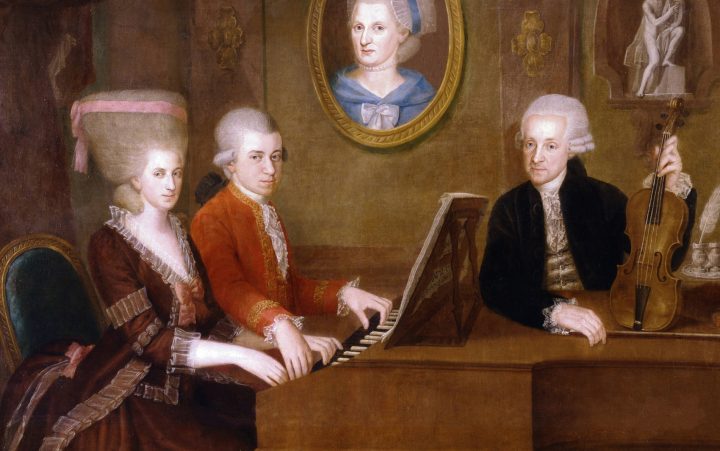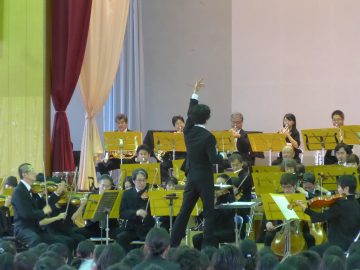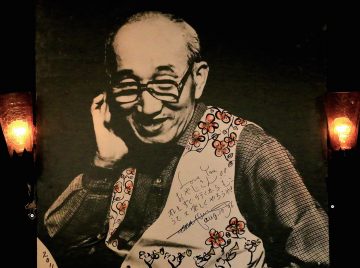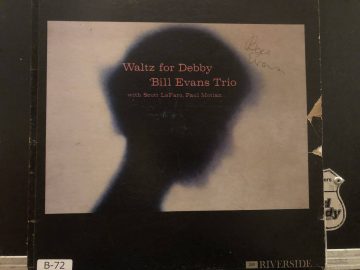Ryu Miho's "Woman in Jazz♡" 6th Noge Jazz Cafe "Chigusa" "Listen carefully to the space where time has passed with Jazz and people"
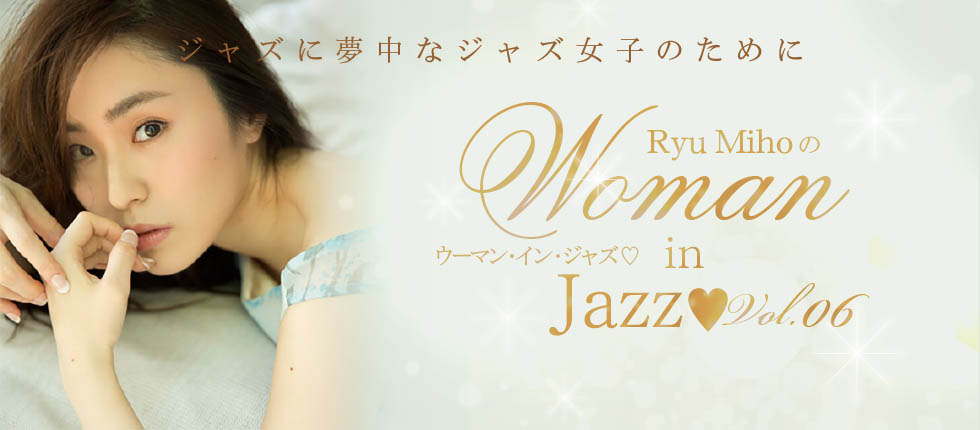
Ryu: The concept of "Woman in Jazz♡" is to make it easier for women to visit jazz houses and jazz cafes, and to make them want to go back.
Fujisawa-san: Actually, I want to attract female customers, so on Mondays you can draw a jazz-themed fortune. You get one candy. That's all.
Ryu: That's nice, it feels like Ladies' Day.
I've actually been here a few times, and from its appearance I get the impression that it's a historic establishment that has been steeped in jazz for a long time. Could you tell me about the background to the establishment of this shop?
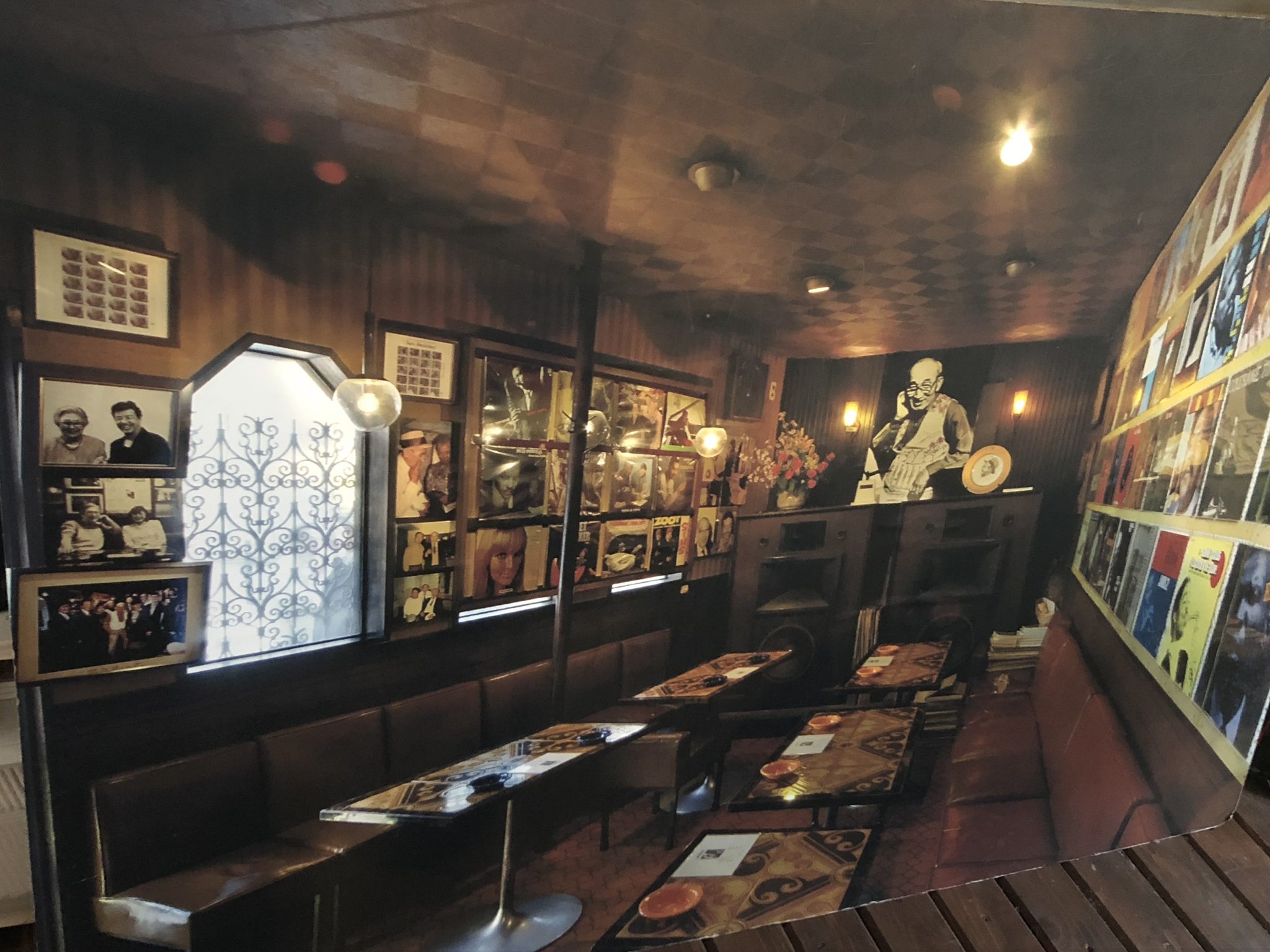
Fujisawa: The store closed once in January 2007. This was because Mr. Yoshida was caught up in a land speculation apartment development, and he said, "I'd rather buy records than buy land." As a result, after Mr. Yoshida passed away, his sister Takako took over and ran the store for several years with the volunteer members of the Chigusa Association, but they received a notice of eviction. If they had wanted to fight, they could have fought, but unfortunately Takako got tired. The members of the Chigusa Association originally helped out after Mr. Yoshida passed away, but they gave up and closed the store once. That was in 2007. At that time, a person like a jazz philanthropist said, "I'll take over Chigusa's precious belongings." From the players to the records to the documents, if they're going to disappear anyway, we'll take them. So the members of the Oita Chigusa Association had a heated discussion.
I'm closing the store for now, but I want to reopen it someday, so I tried to leave some of my belongings behind for that day. However, the speakers are large and the player has a considerable volume, so we had to decide what to do with all of these belongings. A lot of different people have taken care of them.
I spent five years there, moving around a lot.
The property was looked after by the Central Library, the JRA horse racing association's parking lot, and finally the town development association, who said "this is an important asset for Noge," and many other people who looked after it with kindness were kind enough to look after it.
At that time, while Noge Hana*Hana was working on revitalizing the town, the topic of "Why did everyone forget about Chigusa?" arose, and there was someone who especially recommended Chigusa. And for one day, Chigusa was restored in full size as an event.

At that time, photographs of the materials from when Chigusa was dismantled came out.
The old Chigusa was a very old two-story wooden building that was easily destroyed, but when it was demolished, photos were taken. A huge number of them. Hundreds of them. Based on those photos, we redrawn the blueprints and restored it to 70% of its original size at Hana*Hana. About 1,700 people came to visit during the 10 days of business.
I wondered if this one event was going to be the end of it, so I started looking for a store.
When I was looking for a place to fully reopen Chigusa, I happened to find a vacant space next door. This was originally an old bar that had been closed and left abandoned for 10 years, but I managed to get through to the owner and find a space, and rented it in the summer of 2011.
Before that, during the Great East Japan Earthquake, some of our close jazz friends were affected by the disaster, and by chance we saw an article in the Kanagawa Shimbun about Toyama-san from h.IMAGINE who had pulled out a record from the rubble and said, "We won't let this give us the victory. We'll definitely get back together again," and it inspired us.
There's no way we can't do it too. We're all healthy, in this downtown area, with all these friends, and we're so blessed. Let's reopen together! h.IMAGINE's Toyama-san was opening a new store in Ofunato, so we set that as our goal and started working together.
And Yokohama city took advantage of the support system, and we were able to use vacant stores and support the disaster-stricken areas. So we submitted a plan to Yokohama city and received support, and they also subsidized our rent for half the amount, for a year.
Although the earthquake was an unfortunate event that lasted for a year, it gave us the strength to reopen the shop and get started.

Ryu: I see, so the store will open in March 2012.
Fujisawa-san: Yes, we will reopen together with the Ofunato store. However, Ofunato is in a difficult situation, and the land itself was washed away, so we are raising the ground level over a wide area.
Then we decided to build the store, and it took six years for the foundation work to be completed. We've been operating from temporary stores here and there, but we think we'll be able to reopen as a full-fledged store around next year.
I was in contact with Toyama-san on March 11th of this year, asking him how things were going and I think we will continue to do so together.
Ryu: For Chigusa, h.IMAGINE feels like a sister store.
Fujisawa-san: Yes, I'm sorry to say this, but for us it wasn't just a push from the back, it was like we were being kicked from behind, and it gave us strength.
Ryu: I see. You have a strong bond of mutual encouragement.
What kind of ideas does Mamoru Yoshida have when creating a shop "for listening to music"?
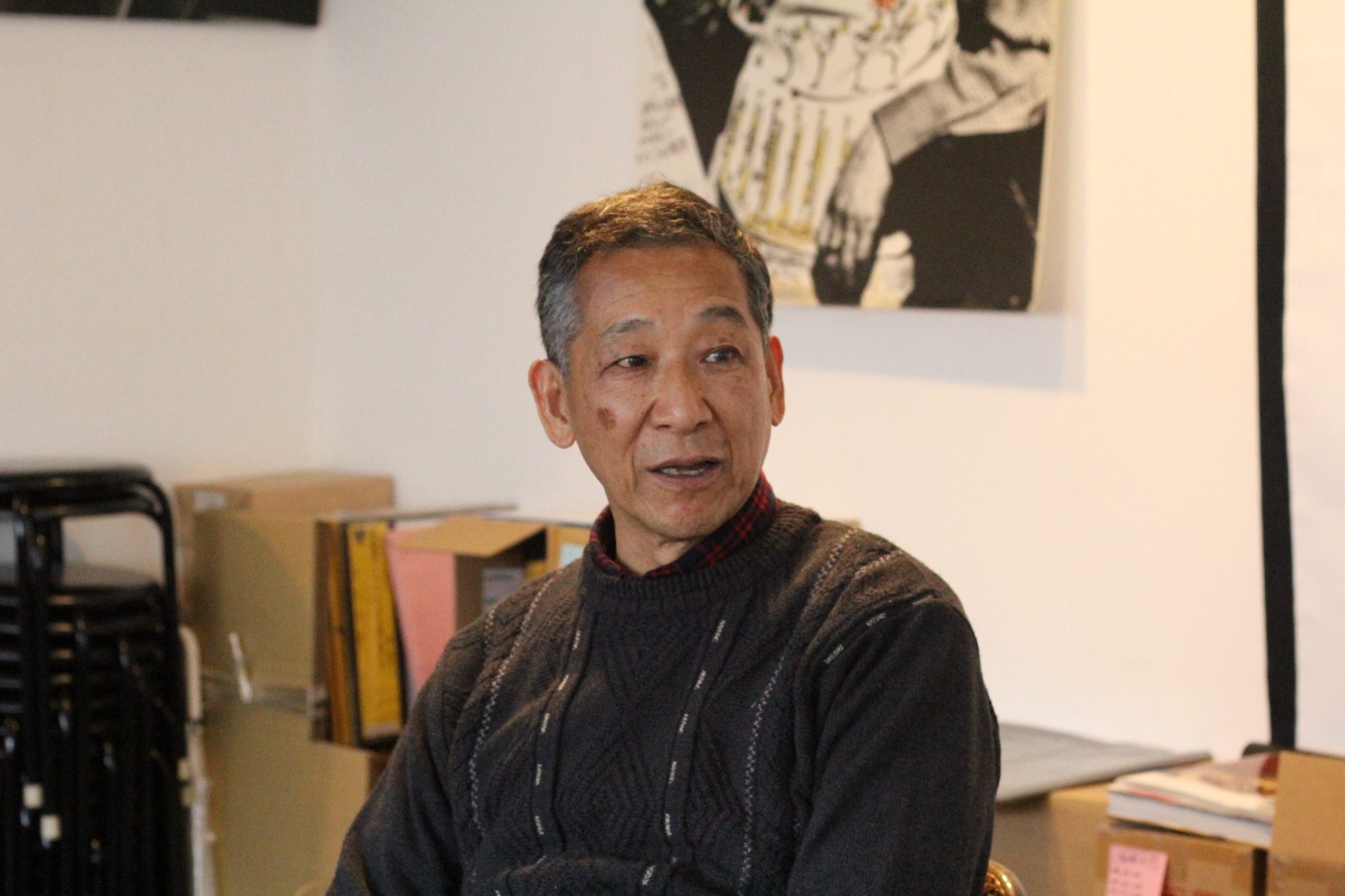
Fujisawa-san: For us, securing a location was the first priority, and we honestly didn't think about whether it would be good or bad for the acoustics. However, by chance, there was an old store that was comparable to the original Chigusa. So, basically, we didn't do much. We didn't do anything, and since there is a second floor, we put a pipe underneath because we were worried that it would fall.
It's funny, sounds tend to blend together.
There were speakers, players, and amplifiers, but in fact it wasn't just that; the building as well; it felt like everything was gradually starting to fit in.
I feel that in a wooden house like this, the atmosphere blends in and absorbs the surroundings, gently giving it back to you, and perhaps this is also felt visually and reactively through the five senses.
No special touches were made.
Ryu: When I listened to it, I thought the sound was great. It was a gentle and deep sound.
Fujisawa-san: That's right. At first I felt uncomfortable, somehow. But gradually, I don't know when, but I started to get used to it.
Ryu: The audio was designed and produced by Hiroyuki Takahashi (an engineer at Victor). It seems that it is an original with Chigusa's name on it, but has it been there since Mamoru Yoshida's time?
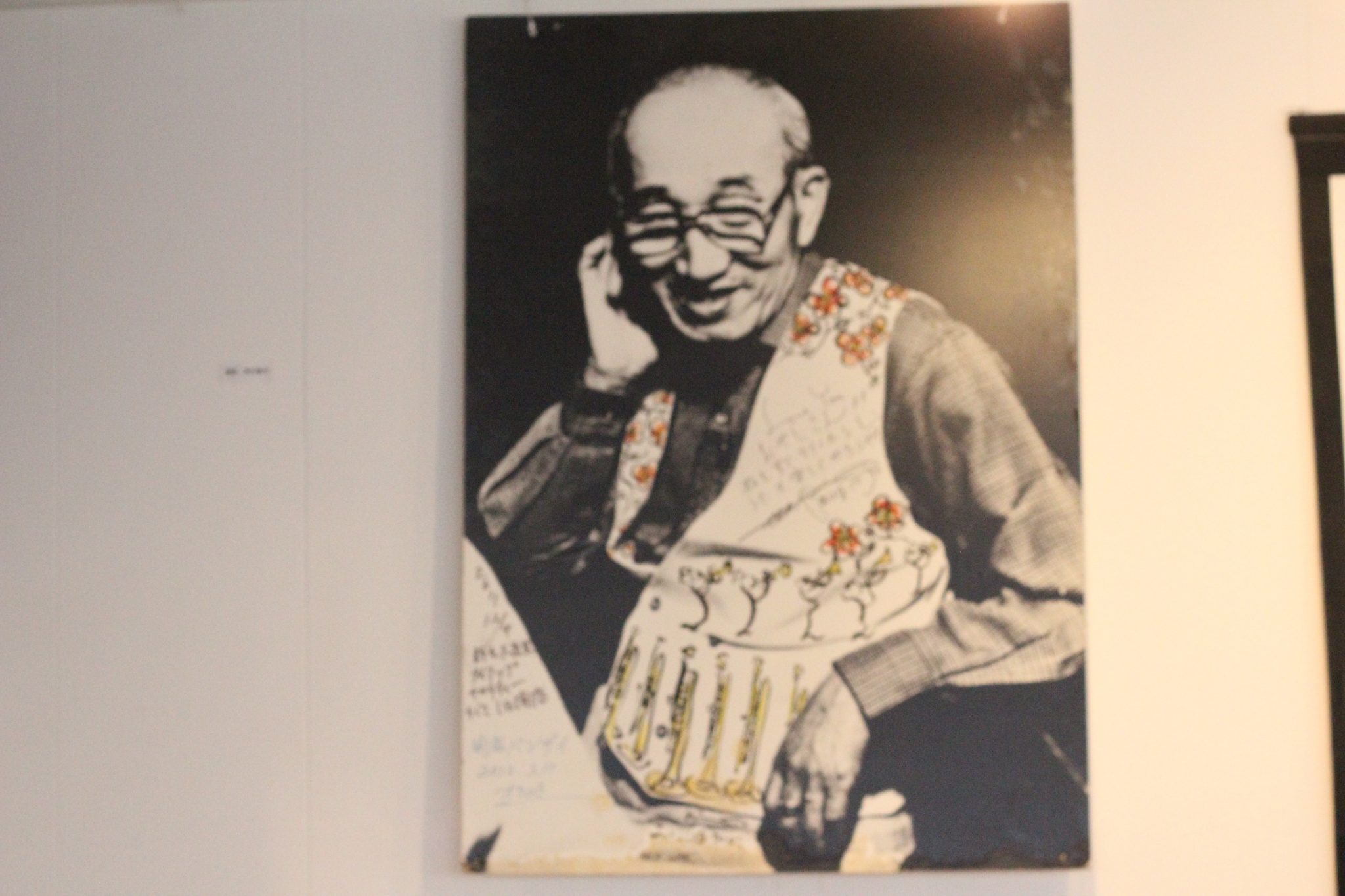
Fujisawa-san: Yes. Mr. Yoshida was called up in 1943. He was dragged to the battlefield. While he was away, everything around here was burned down in the Great Yokohama Air Raid in April 1945.
Everything he held dear is lost there.
Fortunately, he returns, but nothing is there.
But I still wanted to play jazz. I wanted people to listen to it, and I wanted to listen to it with them. So my old friends from back then came together.
People who brought in records, people who worked on the sound equipment, people like that gathered together from all kinds of places and made it. I treasure the end result.
The speakers, amplifiers, and players are all a collection of things, and although I've changed the contents little by little, I still cherish them.
However, people who are knowledgeable about sound tell me that this is no good and that I should buy new ones altogether, but because of the history behind it, it's difficult for me to replace them.
If it were purely a sound, I'm sure people would say it's a shame to let customers listen to something like this. But there are people who say that Chigusa includes a certain kind of noise, and that this is the sound of Chigusa. I think we'll continue with the Chigusa model for the time being.
Ryu: I think it's wonderful. When I enter Chigusa, many people listen intently to the sound of Chigusa, and I find myself standing still too. I guess most customers are usually there to listen to the sound.
Fujisawa-san: I wonder, this too. Jazz was originally music to enjoy and dance to, so Yoshida-san may be responsible for Chigusa (laughs), but there were parts where it said to just shut up and listen quietly, so that's how it ended up.
When you come to this store, you may feel hesitant to talk, but you may wonder if you can't talk in a coffee shop, but it's fine, you're free to do so. Since we have a rotating staff, we treat each person differently.
Ryu: I see. Hearing that made it easier for me to join (laughs).
How many records do you have now?
Fujisawa: About 3,000 copies. There are some that haven't been released yet. There were originally about 6,000 copies, but that number has been cut in half. The rest are in the underground warehouse in Sakuragicho. A lot of older fans have asked me if I would like to take them. These people have heard about Chigusa in the newspapers and the media, and they call me. They say, "Actually, my dad left these here, and I wonder what you think." Or something like that.
I try to accept as many of those things as possible.
Of course there are some songs that are duplicates, but that's fine because there are some that wear out when you listen to them over and over again.
Sometimes things that don't exist come out.
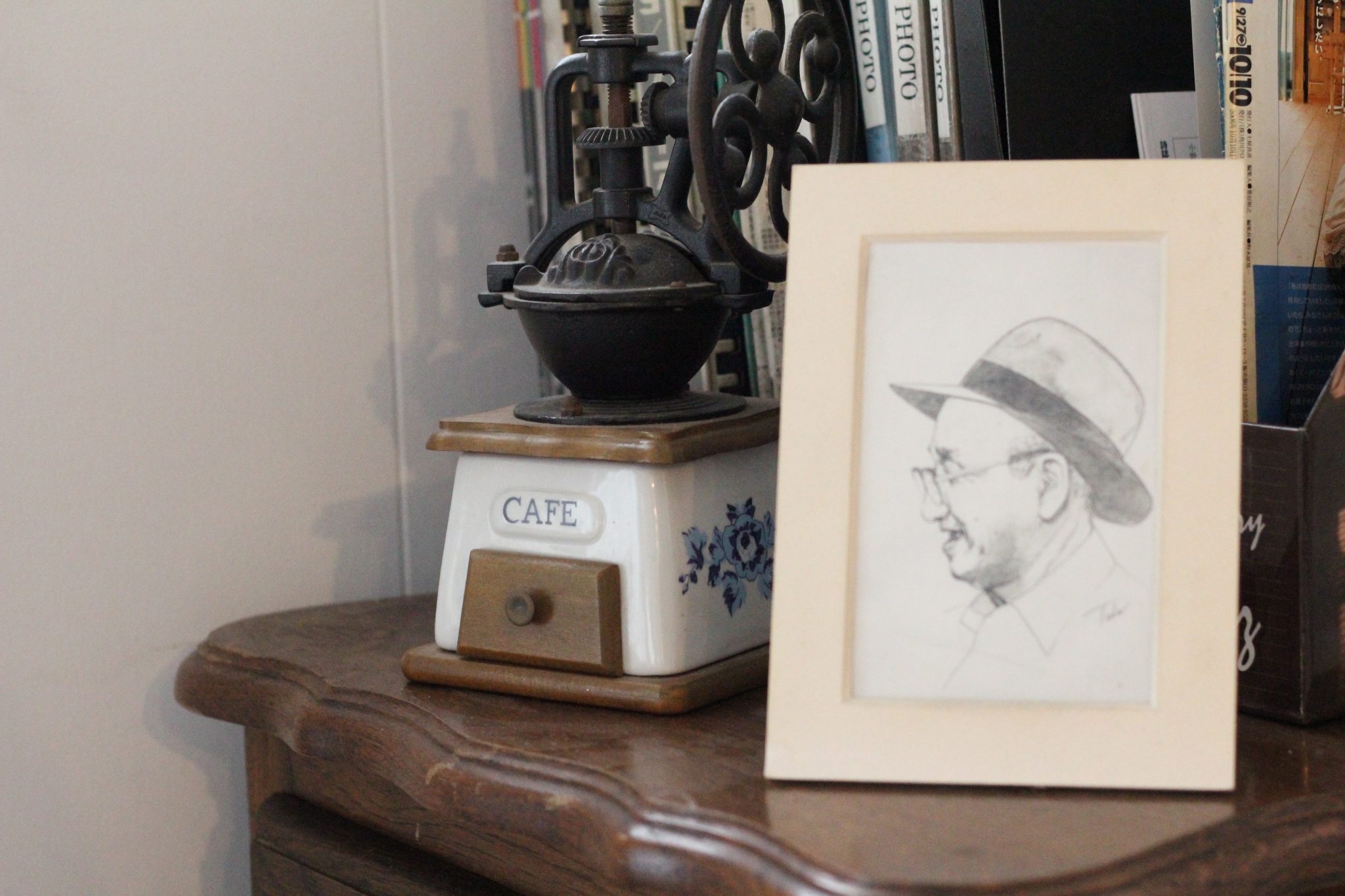
Ryu: Have you been listening to jazz, Mr. Fujisawa?
Fujisawa-san: I had never listened to it before, but I lived next door to the jazz cafe Chigusa in Noge 1-chome. However, when I reopened the shop here, I had to get the cooperation and support of the local people, and I think it was one of the conduits for such relationships.
Ryu: That's right, there are a lot of unknown stories that aren't even on the internet. How do you usually choose your songs?
Fujisawa-san: When Mr. Yusa, who became the last president of the Chigusa Association in terms of song selection, asked "What will you play?" at the opening on March 11, 2012, he said, "It's already been decided, Bill Evans' My Foolish Heart." It was Mr. Yoshida's favorite song, and he always started the store with this song when opening.
So I decided that this song would be the song to be used when I reopened the store after five years.
Mr. Yoshida liked the song, and he would play it to check the condition of his record player.
If you do the same song with the same adjustments, you'll be able to tell if something's different or odd today.
So, in that respect, starting a shop with this song, which is also my favorite song, is a tradition of Chigusa. Also, customers can play this, play that, or whatever, it's not like a lottery (laughs). There's nothing in particular.
Ryu: I see. There are a lot of requests.
Fujisawa-san: Yes, there are a lot of them. About half of them are requests, and the other half are just people who are happy to listen. Everyone is very knowledgeable.
On the other hand, they tell me the names of musicians that customers don't know. They let me play records they've never heard before. I'm grateful for this. It's an unexpected gift.
Ryu: You also do live shows, do you hold them on a regular basis?
Fujisawa-san: Until last year, we did it every week, but now it's about twice a month. Still, there are many people who want to do it at Chigusa. When it was decided that we would do it at Chigusa, the Okinawan child cried. It made me realize that Chigusa has a role, a presence, or an invisible place in the jazz world more than we thought. So, although there are management issues, I would like to open it up as much as possible.
Ryu: It seems like this restaurant is loved by many people, both customers and musicians.
Fujisawa-san: Yes. In order not to lose what Mr. Yoshida has cultivated in Yokohama and Noge in an easy way, we need to pass it on to the younger generation, and especially to support and nurture young musicians. That was Mr. Yoshida's dream to enrich Japanese jazz.
It's not just a coffee shop, so we have to create a label, organize jazz-related events, host events like that, and do sponsorship work in the town, so it's a lot of work.
In these circumstances, paid staff and volunteers support each other.
It's people like this who believe that as long as they have music they like, coffee, and interesting friends, it's enough, and it works because they're the ones who make up the basics.
I don't think jazz cafes would work in this day and age.
But thankfully, Chigusa has a lot of different backgrounds, and many different people often join in to help out. They all use their special skills to help out.
The backgrounds of the various people involved in Chigusa include experts in record packaging and coffee brewing.
And so I've somehow managed to continue for the past six years.
Ryu: It's really wonderful that Chigusa is created with the power and passion of so many people.
Ryu: Finally, please give a message to our female readers.
Fujisawa-san: Recently, many young women have been coming alone. They are interested in movies, want to read novels, or simply want to spend some time alone.
Don't worry about the complicated stuff, just enjoy what you think is good and relax.
Ryu: I'll come again. Thank you very much!

What did you think? The 6th "Woman in Jazz♡"
I went to Noge Jazz Cafe Chigusa, a historic space.
The stories we heard this time that are not even available online were the very thoughts and actions of the many people who have created and protected Chigusa as it is today.
By spending some time alone immersed in this space, you may come to understand important feelings.
Please come and spend some time at Chigusa.
Jazz Cafe Chigusa (Noge)
http://noge-chigusa.com/
